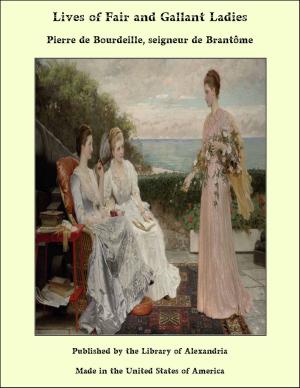| Author: | Arthur Stringer | ISBN: | 9781465584724 |
| Publisher: | Library of Alexandria | Publication: | March 8, 2015 |
| Imprint: | Language: | English |
| Author: | Arthur Stringer |
| ISBN: | 9781465584724 |
| Publisher: | Library of Alexandria |
| Publication: | March 8, 2015 |
| Imprint: | |
| Language: | English |
“Well, she doesn’t make love like a frog,” he retorted with his first betraying touch of anger. I turned to the window, to the end that my Eliza-Crossing-the-Ice look wouldn’t be entirely at his mercy. A belated March blizzard was slapping at the panes and cuffing the house-corners. At the end of a long winter, I knew, tempers were apt to be short. But this was much more than a matter of barometers. The man I’d wanted to live with like a second “Suzanne de Sirmont” in Daudet’s Happiness had not only cut me to the quick but was rubbing salt in the wound. He had said what he did with deliberate intent to hurt me, for it was only too obvious that he was tired of being on the defensive. And it did hurt. It couldn’t help hurting. For the man, after all, was my husband. He was the husband to whom I’d given up the best part of my life, the two-legged basket into which I’d packed all my eggs of allegiance. And now he was scrambling that precious collection for a cheap omelette of amorous adventure. He was my husband, I kept reminding myself. But that didn’t cover the entire case. No husband whose heart is right stands holding another woman’s shoulder and tries to read her shoe-numbers through her ardently upturned eyes. It shows the wind is not blowing right in the home circle. It shows a rent in the dyke, a flaw in the blade, a breach in the fortress-wall of faith. For marriage, to the wife who is a mother as well, impresses me as rather like the spliced arrow of the Esquimos: it is cemented together with blood. It is a solemn matter. And for the sake of mutter-schutz, if for nothing else, it must be kept that way.
“Well, she doesn’t make love like a frog,” he retorted with his first betraying touch of anger. I turned to the window, to the end that my Eliza-Crossing-the-Ice look wouldn’t be entirely at his mercy. A belated March blizzard was slapping at the panes and cuffing the house-corners. At the end of a long winter, I knew, tempers were apt to be short. But this was much more than a matter of barometers. The man I’d wanted to live with like a second “Suzanne de Sirmont” in Daudet’s Happiness had not only cut me to the quick but was rubbing salt in the wound. He had said what he did with deliberate intent to hurt me, for it was only too obvious that he was tired of being on the defensive. And it did hurt. It couldn’t help hurting. For the man, after all, was my husband. He was the husband to whom I’d given up the best part of my life, the two-legged basket into which I’d packed all my eggs of allegiance. And now he was scrambling that precious collection for a cheap omelette of amorous adventure. He was my husband, I kept reminding myself. But that didn’t cover the entire case. No husband whose heart is right stands holding another woman’s shoulder and tries to read her shoe-numbers through her ardently upturned eyes. It shows the wind is not blowing right in the home circle. It shows a rent in the dyke, a flaw in the blade, a breach in the fortress-wall of faith. For marriage, to the wife who is a mother as well, impresses me as rather like the spliced arrow of the Esquimos: it is cemented together with blood. It is a solemn matter. And for the sake of mutter-schutz, if for nothing else, it must be kept that way.















